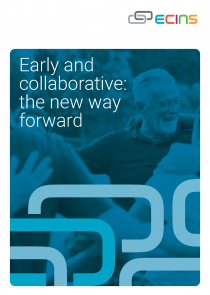U.S. child protection agencies receive over 4 million referrals annually. It is a school’s duty to protect children from harm and recognise the essential role of case management in abuse prevention.
77% of victims are abused by a parent. For many students, school is the safest place to be. The U.S. foster care system is serving an estimated 400,000 children. But, there are still a dangerous number of children who are exposed to unsafe domestic environments outside of school hours.
Children of all backgrounds can suffer from abuse, but data suggests that girls, certain ethnic minorities and socially and medically marginalised children are more vulnerable. It is important for school systems to be especially aware of students in vulnerable demographics.
“Everyone has the human right to live in safety and free from violence and abuse. Society has a duty to recognise and defend this right” – Women’s Aid.
Abuse comes in many different forms, all of which can be detrimental to a child and their development. Children can experience the mental, social/behavioural and physical impacts of abuse on both a short and long-term scale.
For example, one study found that over 30% of victims of childhood neglect have lifetime PTSD. Furthermore, other studies have linked maltreatment in childhood to future health problems, such as diabetes, lung disease, heart attacks, high blood pressure and brain damage.
Abuse prevention seeks to improve the immediate safety and welfare of a child. However, removal from abusive environments also massively improves a person’s prospects in later years. Schools must act quickly and effectively in response to abuse reports to protect vulnerable students. In order to do this, an efficient case management system is essential.
How ECINS Helps
ECINS has developed a system that provides wraparound care for students and allows staff members to help keep young people safe. The role of case management in abuse prevention is vital; vulnerable students can be identified and removed from danger.
With an ECINS system, abuse prevention is an efficient process.
RMM
The procedure of abuse prevention begins in the Referral Management Module (RMM). A witness to the abuse, for example a member of school staff, makes a referral. An automated notification alerts all relevant team members about the form of abuse and the necessary course of action, such as calling the police.
Moreover, the RMM also has a screener tool. Staff members can use this feature to screen for foster families, gather feedback and collect consent forms and e signatures. ECINS ensures that each of these important steps maximise the efficiency of the abuse prevention process.
CMM
The Case Management Module (CMM) receives referrals. Users can then evaluate which actions to take, such as completing a home visit or making a follow-up call.
Children and their parents or caregivers maintain separate profiles that link together within the same case.
Police, psychologists, school staff, social workers, foster families and those completing home visits log their actions and case notes on the CMM. Every member of staff involved in the case is connected and has web access to all relevant information.
Wheel assessments can also be created in within the CMM. They overlay assessment scores to establish trends and highlight areas of progress.
PEM
ECINS’ Parent Engagement Module especially supports abuse prevention in cases involving primary/elementary pupils. There is a variety of features on the PEM that support parents and caregivers:
- The Task Setter and Calendar could be used to give reminders about home visits, drug tests and court dates.
- Pre-loaded Help & Advice Documents offers resources on topics such as shelters or court mandate courses.
- Our Attendance Tracker provides a QR code scanner to confirm that caregivers have shown up to appointments or school meetings.
The PEM can be accessed via web browser or app, so parents and caregivers have the tools to help their child at their fingertips.
ECINS understands the importance of case management in abuse prevention and has developed a system that meets the administrative needs of caregivers and staff from all relevant sectors. The safety of students is fundamental and ECINS’ system supports all relevant parties throughout the abuse prevention process.


